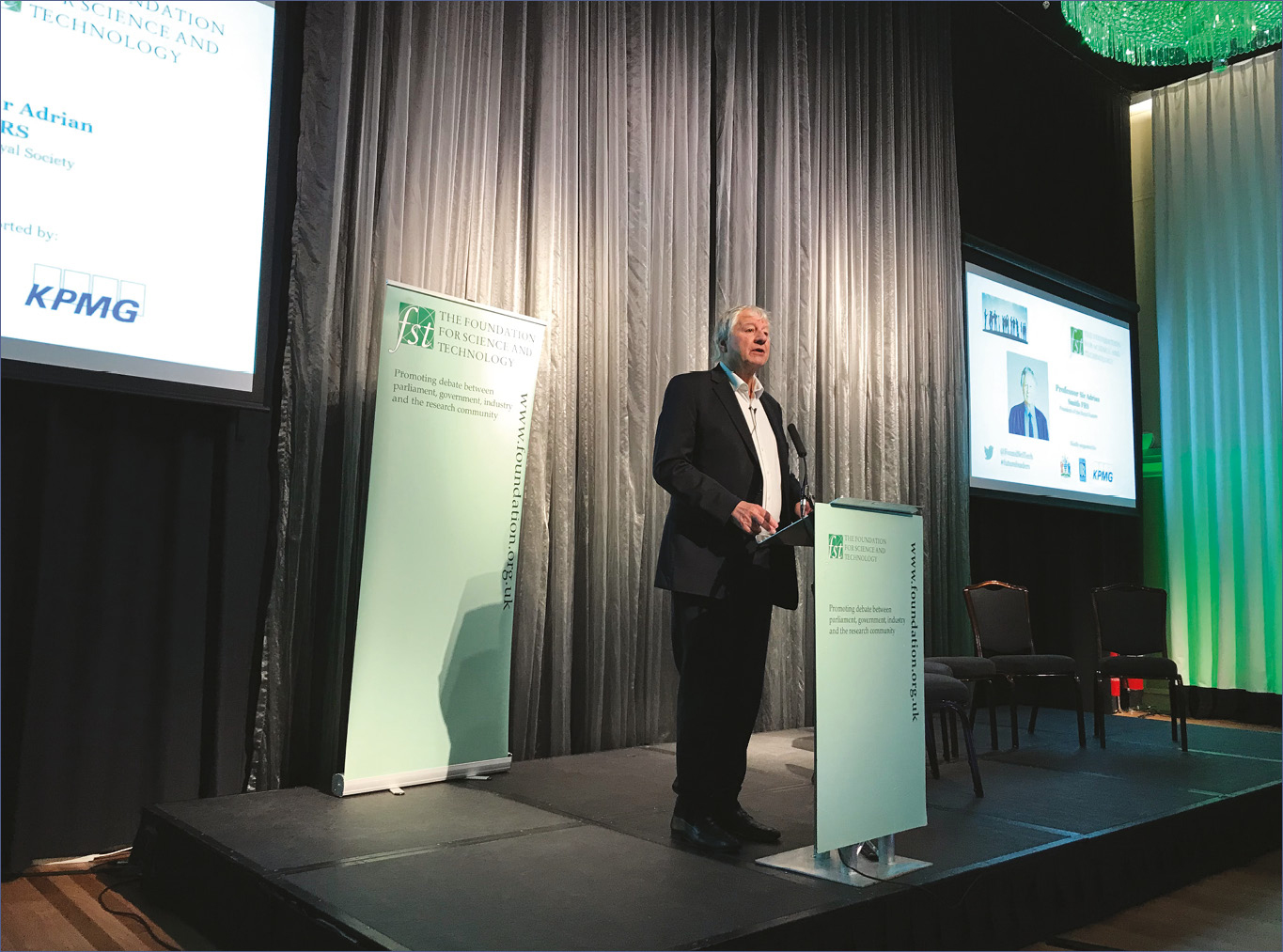FST JOURNAL
Future Leaders
Complexity – in all its forms – provided the theme running through the varied sessions of the first in-person conference organised by the Foundation Future Leaders programme, held at Glaziers Hall, London, on 1 November 2022.
Leadership in tomorrow’s world
The challenges facing society today are – almost without exception – complex. People often use the conclusion ‘there is no silver bullet’ in recognition that issues routinely need a multi-disciplinary, comprehensive approach if they are to be solved.
The 2022 Future Leaders Conference was the first event to be held in person (the previous two being online events due to Covid), although in addition to nearly 200 delegates who made their way to Glaziers Hall, there were a further 150 joining online. The Future Leaders programme aims to give early- to mid-career professionals from a civil service, research or industry background an understanding of how other parts of the economy work. It enables them to network with others from different sectors and so build a more comprehensive understanding of the economy as well as developing networks that cross traditional boundaries.
 Professor Sir Adrian Smith, President of the Royal Society, gives a keynote address at the opening of the conference.
Professor Sir Adrian Smith, President of the Royal Society, gives a keynote address at the opening of the conference. The conference, organised by members of the 2022 cohort, was aimed at their peers, people at a similar stage of career who would benefit from a multi-disciplinary, multi-sectoral view of today’s society.
The conference brought together some of the leading thinkers, policy makers and decision makers to discuss the challenges facing the UK and the world – and suggesting ways in which these could be tackled. Each session was chaired by a member of the programme and the panel discussions that followed the main presentations also included a member of the cohort.
The first session, entitled Tackling the Big Picture, examined how today’s challenges typically stretch well beyond a single specialism. It considered the value of taking a systems approach to these issues and how that could help in resolving them.
The second session looked at the way in which these insights were being deployed to address one of the most urgent challenges facing the world today – climate change. With the conference taking place just a week before COP27 opened in Egypt, the aspirations and targets for that event provided a useful background against which to discuss the journey from setting goals to delivering results.
Yet all these actions have to be achieved by people. What are the skills and capabilities that will be needed by future leaders if they are to create permanent solutions that enable humanity to have a continuing and prosperous future on this earth? The skills question as well as structural issues such as diversity, equality and inclusion (EDI) provided the setting for the afternoon session. How can we create a world of work where everyone has to the opportunity to use their talents productively to improve the social, economic and environmental conditions within which we all live?
The sessions were all recorded and made available on the Foundation website at: www.foundation.org.uk/Events/2022/Leadership-in-Tomorrow-s-World-Foundation-Future-L
